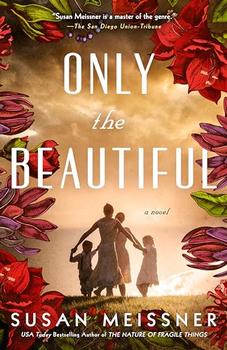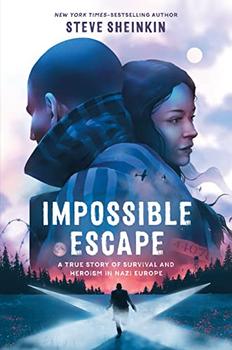Summary | Excerpt | Reading Guide | Reviews | Beyond the book | Read-Alikes | Genres & Themes | Author Bio

Elana K. Arnold's YA novel The Blood Years narrates the story of Frederieke "Rieke" Teitler, a young Jewish girl in Holocaust-era Romania. As the oppression of Jews escalates in the city of Czernowitz, Rieke and her family find themselves forced to do whatever it takes to survive and stay together.
Rieke and her family are based on the author's grandmother, Frieda, and other relatives. Many of the events depicted in the book came directly from stories Frieda told Arnold, including the circumstances of Frieda's birth, the family's abandonment by Frieda's father, and Frieda's time as a dancer. Also true are the antisemitic episodes that led to the loss of Frieda's grandfather's shop, the terror of Frieda's tuberculosis, and the horrific murder of a family member outside the Teitler's home. Arnold blends fiction with the truth to portray the trauma of the Jews who survived the war years in Romania, many of whose stories have remained untold, and to pay tribute to those who didn't survive.
In the book's foreword, Arnold mentions that when asked if she'd been imprisoned during the war, her grandmother would answer, "Not exactly." Many books about World War II feature characters that are sent to concentration camps, but as The Blood Years makes evident, Jews didn't have to be sent to the camps to experience atrocities at the hands of the Nazis and their allies. For Rieke, it's almost worse to remain in the city that no longer resembles the place she once loved. The name of the city has changed, businesses have been destroyed or abandoned, and people are disappearing day after day, including many of Rieke's close friends. The restrictions placed on the Jewish people continuously change depending on what country and what person is in charge, and people who have authorizations that allow them to stay and work suddenly find their passes revoked for having the wrong signature (see Beyond the Book).
It's a world of constant uncertainty, and readers feel Rieke's resulting anxiety. On top of these bigger problems are smaller but still consequential setbacks, such as Rieke's brother-in-law being unfaithful and Rieke's own uncertainty about the existence of God. These everyday problems show that life goes on despite the chaos and death infiltrating the city. Babies are born, people adopt pets, and sisters fight, including Rieke and her sister Astra. Rieke and Astra have a very typical sibling relationship — Rieke looks up to Astra, and Astra pretends to dislike Rieke tagging along on her outings. The two often disagree, but they defend and lean on each other when times are tough. As the oppressive environment of Czernowitz continues to worsen, both sisters make tough choices to take care of their family, even at the cost of their own emotional and physical well-being.
These choices bring them closer while ultimately taking them in different directions, but most importantly, they're made with love. This is a pervasive theme throughout the story—the love of God, the love of family, the love for one's city and country—and although Rieke's future remains unknown, it's clear that Frieda's story ended with a family who loved her and a granddaughter determined to share her experiences with the world. The Blood Wars is a story of love, faith, and perseverance that honors both the Jews in WWII-era Romania and a young woman who found the strength to hope in the face of darkness.
![]() This review was originally published in The BookBrowse Review in January 2024, and has been updated for the
November 2024 edition.
Click here to go to this issue.
This review was originally published in The BookBrowse Review in January 2024, and has been updated for the
November 2024 edition.
Click here to go to this issue.

If you liked The Blood Years, try these:

by Susan Meissner
Published 2024
A heartrending story about a young mother's fight to keep her daughter, and the winds of fortune that tear them apart by the USA Today bestselling author of The Nature of Fragile Things and The Last Year of the War.

by Steve Sheinkin
Published 2023
From three-time National Book Award finalist and Newbery Honor author Steve Sheinkin, a true story of two Jewish teenagers racing against time during the Holocaust - one in hiding in Hungary, and the other in Auschwitz, plotting escape.
Your guide toexceptional books
BookBrowse seeks out and recommends the best in contemporary fiction and nonfiction—books that not only engage and entertain but also deepen our understanding of ourselves and the world around us.